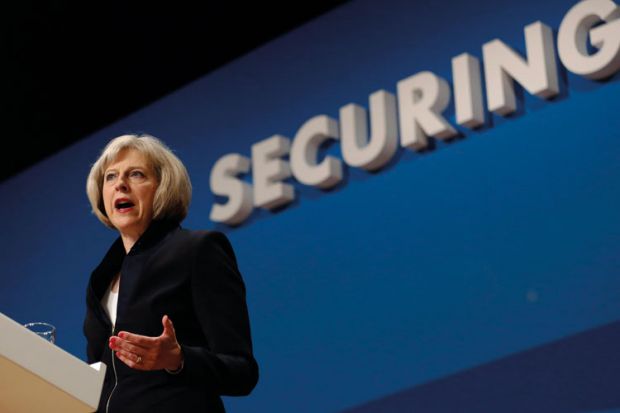Judges have ruled that Theresa May relied on “hearsay” evidence and did not prove her case that two students had cheated in their English language tests.
The home secretary’s case was part of a crackdown that saw more than 19,000 international students told to leave the UK or barred from the country, following claims that qualifications offered by Educational Testing Service were targeted by fraudsters.
The politics.co.uk website, which first reported on the judgment against Ms May in the Upper Tribunal (Immigration and Asylum Chamber), says the ruling could potentially mean “the return of thousands of students to the UK”.
Three universities and dozens of colleges had their visa licences suspended in June 2014 as the Home Office took action against institutions that had significant numbers of students with ETS qualifications, and against the students, following the fraud claims.
Although the universities involved were eventually allowed to start recruiting again, figures for the year to April 2015 showed that the Home Office action resulted in at least 84 private colleges losing their visa sponsorship rights while decisions to refuse a visa application, curtail an existing visa or remove a student were made in “more than 19,700” cases after the visa licence suspensions.
The figures also revealed that 900 of these students were held in detention centres after being served with removal notices.
The judgment is in the case of two unnamed people who appealed against claims that they had cheated in their test.
The summary of judgment, made by Mr Justice McCloskey and Deputy Upper Tribunal Judge Saini, says that the evidence of the home secretary’s two principal witnesses was “intrinsically limited”.
“Apart from the limited hearsay evidence…there was no evidence from the protagonist in this saga, the ETS organisation,” the judgment adds.
Both students were “truthful and reliable in their accounts”, it says.
The judgment “concludes that the Secretary of State [Ms May] has not discharged the legal burden of establishing that either Appellant procured his TOEIC [Test of English for International Communication] certificate by dishonesty.
“The core of the Secretary of State’s case was that both Appellants had cheated. The Tribunal concludes that this accusation has not been proven to the requisite standard.”
A Home Office spokesman said: “The government continues to tackle abuse of our immigration system and protect the reputation of our world class education institutions.
“The investigation into the abuse of English language testing in 2014 revealed extremely serious, large scale, organised fraud.
“We are very disappointed by the decision and are awaiting a copy of the full determination to consider next steps including an appeal. It would be inappropriate to comment further at this stage.”




